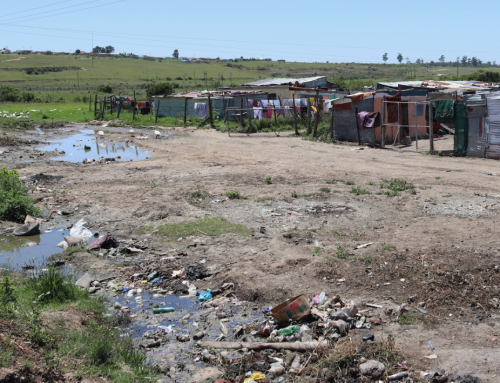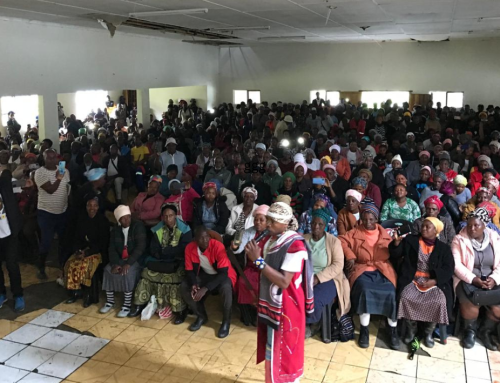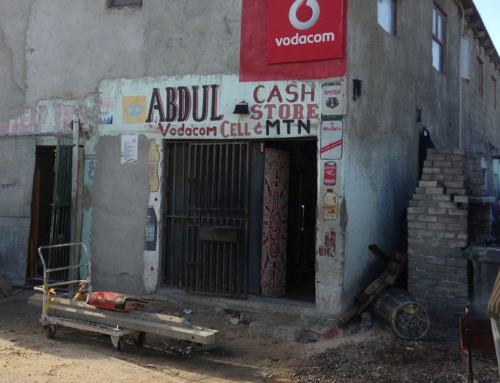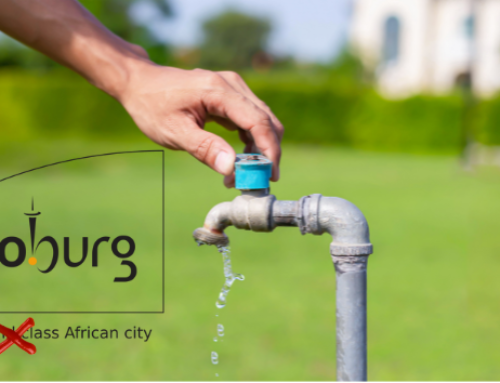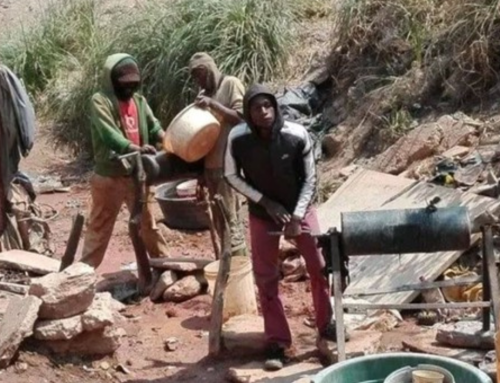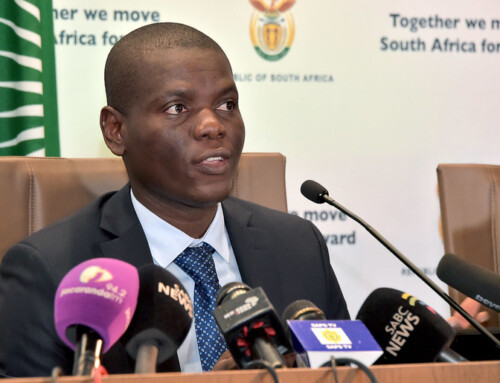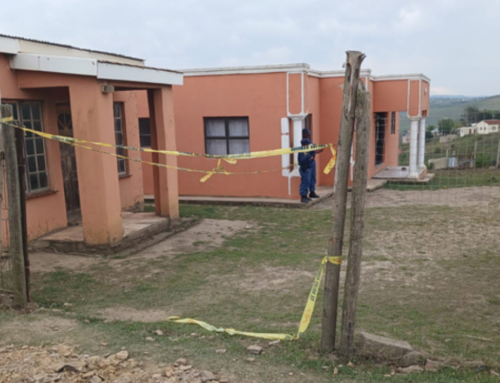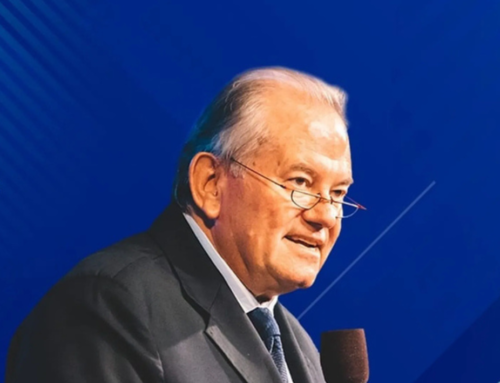Click here of for a downloadable copy of the UDM’s Ten Point Plan in PDF format.
1. Provincial Government of Unity
The proposal for a provincial model of the Government of National Unity (GNU) as the executive in the Eastern Cape is a significant agenda item.
During UDM President Bantu Holomisa’s tenure as head of government in Transkei, his leadership in this part of our province played a pivotal role in unbanning various struggle organisations, including the ANC, AZAPO, PAC, etc., in 1989. He has demonstrated success in collaborating with diverse organisations and individuals. He knows and understands the Eastern Cape, good governance and respects diversity.
Cadre deployment will be phased out, and leadership positions in public administration will be filled based on skills and qualifications identified through a comprehensive skills audit. This shift aims to lead the province out of its current challenges.
The Eastern Cape, known for its rich educational history (e.g. University of Fort Hare), still possesses valuable human resources. However, many talented individuals have left the province, contributing to brain drain. There is a pressing need to harness this talent to realise the province’s potential.
In addition to the issues outlined in the United Democratic Movement’s (UDM) national manifesto, the proposed Eastern Cape Government of Provincial Unity will prioritise addressing infrastructure collapse, improving the provincial economy, land allocation, crime reduction, job creation, basic healthcare, and investments in food security and tourism.
The Eastern Cape provincial government will also address contentious issues such as military veterans’ welfare, pension for ex-civil servants, and Unemployment Insurance Fund (UIF) payments for ex-mineworkers. It is deemed unethical for overnight millionaires and billionaires to profit from workers’ pensions and UIF funds. These issues will be handled with firmness and resolve.
2. The Provincial Economy
The Eastern Cape faces persistent challenges of poverty, inequality, unemployment, and a prolonged period of little or no economic growth. Economic growth in the Province remains far below 1% per annum, while its official unemployment rate is the highest in the county at 41.9%. Poor economic policy choices and bad public leadership by the governing party in the Province are to blame for negligible or no economic growth in the Eastern Cape.
The economy heavily relies on agriculture, manufacturing, and automotive industries, leaving it susceptible to global market fluctuations. Inadequate infrastructure, including transportation, energy, water, and sanitation services, stifles economic progress and discourages investment. A skills gap persists, with the workforce lacking the qualifications demanded by the economy, resulting in underemployment and informal sector dominance. Even the informal sector is shrinking due to neglect and lack of support by government. Province struggles to attract investment partly due to weak political leadership, corruption and infrastructure deficiencies. Urban-rural economic disparities further compound social and economic inequality, limiting opportunities for marginalised communities.
A Provincial Government of Unity under Bantu Holomisa’s leadership will:
• Within a hundred days of office host a Provincial Indaba on the Economy and Crime, to amongst others, discuss with all relevant stakeholders how the Provincial Government of Unity can:
o Encourage the development of new industries and sectors beyond agriculture, manufacturing, and automotive. The weaknesses in the agriculture and manufacturing need to be addressed and then we shall invest in renewable energy, tourism, information technology, and creative industries. This diversification can help reduce reliance on volatile sectors and create new opportunities for employment and growth.
o Prioritise infrastructure development, including upgrading transportation networks, inclusive of railways, expanding access to reliable energy supply, and improving basic services like water and sanitation. This infrastructure investment can attract private investment, facilitate business expansion, and enhance the overall competitiveness of the province.
o Invest in education and technical skills development programmes to address the mismatch between the skills demanded by the economy and those possessed by the workforce. Provide training and support for vocational and technical skills development, as well as entrepreneurship training to encourage job creation and economic empowerment. This would include the establishment of specialised schools and colleges focused on agriculture and technical skills.
o Develop targeted investment promotion strategies to attract local and foreign investment to the Eastern Cape. This can involve providing incentives for businesses to invest in the province, improving the ease of doing business without red tape, brown envelopes, cadre deployment and empowering the instant millionaires, and addressing perceptions of political instability through transparent and accountable governance without the influence of factionalism.
o Reopen the now defunct border industries that used to create jobs in the rural areas close to the people in Butterworth, Dimbaza, Fort Jackson, Whittlesea and Ezibeleni.
o Working with traditional leaders and other relevant stakeholders, implement targeted rural development initiatives to address poverty and unemployment in rural areas. This can include investing in agricultural infrastructure, supporting smallholder farmers, promoting agribusiness development, and expanding access to markets and finance for rural entrepreneurs.
o Implement policies and programmes aimed at reducing economic disparities between urban and rural areas, including targeted investment in infrastructure, social services, and economic development initiatives in marginalised communities.
o Ensure that economic development policies and programmes prioritise social inclusion and equity, including addressing economic opportunities and promoting gender equality. This involves implementing promoting access to education and healthcare, and empowering marginalised communities to participate in decision-making processes, especially traditional leaders.
o Establish a provincial bank to fund development programmes i.e. Imbewu Bank
o Adopt a venture capital mind-set, providing seed money to local enterprises for which they would receive a share in the returns of the enterprise. Local government shall be empowered to provide resources for developing appropriate infrastructure for street traders and hawkers to support these fledgling entrepreneurs. This will encourage their important role in the economy as well as contribute to job creation and enterprise development in the local economies.
o Reserve via legislation – such as in other parts of the world – certain enterprises solely for South African citizens such as, but not limited to the sale of goods or provision of services in a market, petty trading or hawking or selling of goods in a stall at any place and spaza shops.
o Encourage partnerships between South Africans and non-South Africans in the operation of beauty salons or barber shops to encourage skills transfer.
o Invest in rail infrastructure, including the reintroduction of the Mthatha line, to support transportation of people and goods to the eastern part of the province and improve the operation of regional airports to facilitate efficient business transactions and air cargo/freight transportation.
3. Tourism
The Eastern Cape is blessed with the most beautiful nature landscapes in the entire country, from the lush coastline of the Wild Coast to the stark arid to semiarid landscape of the Karoo. We have the highest bungee jumping in the world, the only National Park with Big 7 at the Addo Elephant National Park, Baviaanskloof, Valley of Desolation, the waterfalls of the Transkei, the historical towns of Lusikisiki and Graaff-Reinet, the only ski-resort in South Africa, highest mountains in the country, the Langeni Pass, the largest private land under conservation management in the world in the form of the Mountain Zebra Camdeboo Protected Environment, various other private game reserves, museums and a lot more.
The UDM acknowledges tourism as a vital industry for job creation and enterprise development, particularly in South and Southern Africa, including the Eastern Cape. Moreover, safeguarding wildlife and biodiversity cannot be achieved in isolation; local communities must reap the benefits of nearby parks and actively participate in environmental conservation efforts.
A Provincial Government of Unity under Bantu Holomisa’s leadership will:
• Encourage local community involvement in tourism by promoting activities like selling arts and crafts, preserving the environment, accommodation facilities, environmental, history and museum guided tours.
• Allocate more government resources to develop and market tourism both locally and internationally to boost the tourism sector.
• Modernise tourist infrastructure such as transportation, telecommunications, and electricity to improve the overall tourism experience.
• Collaborate with local and international partners to enact policies that protect wildlife, wilderness areas, and wetlands, involving the private sector where feasible.
• Enhance tourist safety through increased policing, especially in busy tourist areas.
• Promote the tourism industry locally by ensuring efficient services and competitive pricing to make tourism accessible to the community.
4. Infrastructure development
Many districts and towns in the Eastern Cape are facing severe challenges with their infrastructure and services, particularly the smaller ones. These vital systems not only support the local economy but also impact the quality of life for residents and visitors alike who rely on them for their material and physical well-being.
Bridges lay in disrepair, underground pipes leak water, sewage spills happen daily, stormwater systems fail, and streetlamps remain unlit, illustrating the extensive range of issues plaguing these communities. The Mazeppa Bay Hotel was forced to closed due to lack of road access, for example.
A Provincial Government of Unity under Bantu Holomisa’s leadership will:
• Prioritise investment in repairing and upgrading critical infrastructure such as bridges, water supply systems, sewage networks, stormwater drainage systems, and street lighting. This will involve allocating government funds, seeking support from development partners, and leveraging public-private partnerships (PPP) to finance infrastructure projects.
• Implement regular maintenance schedules and proactive repair programs to address existing infrastructure deficiencies and prevent further deterioration. This includes conducting routine inspections, identifying areas in need of repair, and promptly addressing maintenance issues to ensure the functionality and safety of infrastructure systems.
• Enhance the capacity of local authorities and municipal agencies responsible for infrastructure management and maintenance. This will involve providing training and technical assistance to personnel, improving governance and institutional frameworks, and strengthening disciplined financial management practices to ensure efficient use of resources.
• Engage with local communities via properly arranged LED and IDP processes to understand their infrastructure needs, prioritise projects, and involve residents in decision-making processes. Community participation will help ensure that infrastructure investments are aligned with the priorities and preferences of the people they serve, leading to more effective and sustainable outcomes.
4.1. Crumbling roads and potholes
From the Rietbron in the north to Mvezo in the south, and from Port St. Johns along the Wild Coast to Tabase inland, this region relies heavily on roads for their daily needs. Whether it is for livelihood activities, visiting loved ones, purchasing essentials like food and clothing, accessing healthcare and education services, or collecting pensions, roads play a crucial role in their lives. For tourists, road travel serves as the primary means to explore the attractions of the Wild Coast and other scenic spots within the Province.
However, the prevalence of potholes poses significant risks to travellers, especially along tourism routes such as the journey from Viedgesville to Coffee Bay, continuing to the iconic Hole in the Wall, and further northward to Elliotdale, as one example. The same applies to the routes to Wild Coast Casino, to Maluti and Aliwal North sides. The incomplete state of the R61 between Engcobo and Mthatha, despite prolonged delays and excuses from the South African National Roads Agency (Sanral), exacerbates these challenges.
Despite being a potential tourist hotspot with its rich historical landmarks, the Wild Coast, Karoo, Maluti and other rural areas, the Eastern Cape lacks adequate investment in its infrastructure. Maintaining and upgrading the roads infrastructure is crucial to fully capitalise on the region’s tourism potential and support its development.
A Provincial Government of Unity under Bantu Holomisa’s leadership will:
• Prioritise investment in road infrastructure to address the prevalence of potholes and incomplete road sections. Allocate funds for road maintenance, repairs, and upgrades to improve travel conditions and enhance safety for residents and tourists alike.
• Hold government agencies accountable for road maintenance and infrastructure development. Ensure that projects are completed on time and within budget, address bureaucratic delays, and hold those responsible for mismanagement or negligence accountable.
• Collaborate with private sector partners to accelerate infrastructure development and leverage additional resources. Public-private partnerships (PPPs) can facilitate funding, expertise, and innovation in road construction and maintenance, leading to more efficient and cost-effective solutions.
• Engage with local communities to understand their needs and concerns regarding road infrastructure. Consult with residents, businesses, traditional leaders, agricultural associations, tourism associations to prioritise projects, allocate resources effectively, and ensure that infrastructure investments benefit the entire community.
• Recognise the importance of road infrastructure for tourism development. Invest in road improvements along popular tourist routes, such as those leading to the Wild Coast and historical landmarks, to attract more visitors, stimulate economic growth, and create employment opportunities in the region.
• Adopt a long-term perspective on infrastructure planning and development to address both immediate challenges and future needs. Consider factors such as population growth, urbanisation, climate change, and technological advancements in infrastructure design and construction.
5. Violent crime
Crime affects investment opportunities in the Province, and our people’s ability to operate their businesses. In addition, ensuring the safety of both livestock and rural communities remains a critical concern, exacerbated by the distant location of police stations from their villages. However, recent crime statistics for the third quarter of the 2023/24 financial year, covering the period from October to December 2023, indicate that the South African Police Service (SAPS) is struggling to combat crime in the Eastern Cape Province.
The Eastern Cape continues to grapple with the highest murder ratio in the country, with 22 murders per 100,000 of the population. Alarmingly, seven stations in the province rank among the top 30 stations nationally for murder, including Mthatha, New Brighton, Motherwell, Willowvale, KwaZakhele, Libode, and Lusikisiki.
While efforts can be made towards fostering a “community in blue” approach to policing, essential to recognise that the primary focus of the farming community is on food production and security, as well as safety and law enforcement.
Moreover, there’s significant concern for the safety of women and children, extending across both urban and rural settings where instances of domestic abuse are distressingly prevalent.
Addressing the safety concerns of rural communities, particularly regarding livestock and personal well-being, requires a combination of approaches:
• Implement community policing programmes to empower local residents to safeguard their communities. This involves building strong partnerships between law enforcement agencies and community members, fostering trust, and encouraging collaboration in crime prevention efforts.
• Allocate resources to establish satellite police stations or mobile patrols (police visibility) in rural areas to improve response times and enhance overall security. This may involve deploying dedicated rural policing units or utilising technology such as CCTV cameras and drones to monitor remote areas.
• Improve communication channels between rural communities and law enforcement agencies for reporting crimes, seeking assistance, and receiving timely updates on safety issues. Set up dedicated hotlines, community liaison officers, or utilise mobile apps for reporting incidents.
• Provide specialised training to law enforcement personnel on rural policing techniques, cultural sensitivity, and community engagement strategies to improve their effectiveness in addressing rural safety concerns. Additionally, invest in resources such as vehicles, equipment, and infrastructure to enhance law enforcement capabilities in remote areas.
• Engage with stakeholders such as agricultural organisations, community leaders, non-profit groups, and government agencies to facilitate holistic approaches to rural safety. Collaborative efforts may include implementing crime prevention programs, providing support services for victims of domestic violence, and addressing underlying social and economic factors contributing to crime.
• Promote gender equality, providing education on women’s rights, and offering support services for survivors of domestic abuse are crucial steps in addressing the safety concerns of women and children in both urban and rural settings. This involves strengthening legal frameworks, increasing access to shelters and counselling services, and promoting awareness campaigns to challenge harmful attitudes and behaviours.
5.1. Stock theft
The livestock owned by the local communities serve more than just a symbolic or economic purpose; they are vital for sustenance and transportation. Ensuring the well-being of these livestock is crucial, which includes providing access to communal dipping tanks and kraals for disease prevention and implementing proper fencing to separate grazing areas from cultivated fields.
However, a significant concern for these communities is the rampant theft of livestock, which not only inflicts economic hardship on commercial farmers but also affects subsistence farmers and households. It is deeply troubling that there are instances where members of the South African Police Services (SAPS) are suspected to be complicit with these thieves, and such collaboration must be unequivocally condemned and halted.
A Provincial Government of Unity under Bantu Holomisa’s leadership will:
• Strengthen law enforcement efforts to combat livestock theft by increasing police patrols in rural areas, establishing specialised units dedicated to livestock theft investigation, and providing training to law enforcement officers on identifying and prosecuting livestock thieves.
• Empower communities to take action against livestock theft by providing training on livestock management practices, legal rights, and reporting procedures. This empowers community members to protect their assets and hold perpetrators accountable.
• Build partnerships with law enforcement agencies, government authorities, and community leaders to address systemic issues related to livestock theft. Advocate for increased resources and support for rural policing efforts to improve response times and investigative capacity.
• Rely on the importance of intelligence gathering, the “township telegraph”, the role of ward councillors and iibhodi (sub-headmen) knowing their communities and the role of street committees.
• Raise awareness about the impact of livestock theft on rural communities and the broader economy to mobilise support for anti-theft initiatives. Conduct educational campaigns on crime prevention strategies, legal rights, and available support services to empower community members to safeguard their livestock and livelihoods.
• Address allegations of police complicity in livestock theft through transparency, accountability, and zero tolerance for corruption within law enforcement agencies. Investigate and prosecute cases of police misconduct, implement oversight mechanisms, and promote a culture of integrity to restore public trust and confidence in law enforcement.
6. Waste management and environmental protection
The streets of towns in the Eastern Cape region are marred by filth, with informal settlements bearing the brunt of discarded rubbish piled up indiscriminately. Despite municipal bylaws, business and factory owners often disregard regulations, and local municipalities display lax enforcement. This lack of adherence extends to waste management practices, which are generally poor or completely absent.
The consequences of this negligence are manifold. Not only does litter create an unsightly environment, but it also serves as a magnet for vermin and poses significant health risks to residents. Addressing the issue of filth and poor waste management in the Eastern Cape region requires a multi-faceted approach involving various stakeholders:
• Local municipalities must prioritise the enforcement of existing bylaws related to waste management and cleanliness. This involves issuing fines for violations and holding business and factory owners accountable for their waste disposal practices.
• Educate residents about the importance of proper waste disposal and cleanliness. Implement community clean-up initiatives, workshops, and awareness campaigns to foster a sense of responsibility among residents and businesses alike.
• Invest in waste management infrastructure, such as garbage collection services, recycling facilities, and landfill management. Work towards establishing efficient waste collection schedules and ensure proper disposal and recycling of waste materials.
• Collaborate between local government, businesses, community organisations, and environmental groups. Develop comprehensive solutions, share resources, and coordinate efforts to tackle the issue effectively.
• Address the root causes of poor waste management through long-term planning and sustainable solutions. Invest in infrastructure upgrades, implement waste reduction strategies, and incorporate environmental considerations into urban planning processes.
• Explore Waste-to-energy (WtE) i.e. the process of generating energy in the form of electricity or heat from the incineration of waste materials.
7. Traditional leaders
The role of traditional leadership has often been diminished and disregarded, posing a threat to one of the most significant social institutions deeply rooted in rural communities. For millions of South Africans, traditional leaders serve as respected authority figures, undisputed decision-makers, and custodians of culture, traditions, and values. Particularly in rural areas, they represent the closest form of governance known to many.
However, there exist stark disparities in how traditional leaders from different tribes and levels are treated. Moreover, the vital role of sub-headmen (iibhodi) as crucial links between rural villagers, municipal councillors, headmen, and Amakhosi must be acknowledged. Revisiting the institution of traditional leadership and its societal role is imperative in the process of rebuilding South Africa.
A Provincial Government of Unity under Bantu Holomisa’s leadership will:
• Acknowledge that cultural rights such as language, religion and that traditional leaders play a critical role in ensuring that our people’s rights to dignity is restored and protected.
• Recognise and protect the role and institution of traditional leaders.
• Properly budget for the value of the perks (such as value for money vehicles) for all traditional leaders and of critical importance is that such perks should be standardised across the board.
• Investigate solutions in terms of the plight of sub-headmen (iibhodi).
8. Agriculture and food security
Commercial and subsistence farming in the Eastern Cape is of critical importance to the local economy and the food security of the people in the province.
Subsistence farming has waned in rural Eastern Cape, with small plots of land left unused due to lack of tractor services, which should again be provided by government. Reviving this practice is crucial for local food security and poverty alleviation, reducing reliance on store-bought goods. Selling produce at local markets can provide income or facilitate food exchanges, empowering communities economically.
The UDM advocates for a focused approach to boost agriculture and related businesses in the Eastern Cape, serving as a catalyst for rural development. We believe that investing in infrastructure will not only create jobs but also foster the growth of more employment-generating agricultural enterprises, thereby curbing migration to urban areas. Aligning with the UDM Land Policy, we propose expediting land distribution to incentivise people to either return to or stay in rural areas and initiate productive ventures there.
The UDM proposes a holistic approach to infrastructure development, covering physical and socio-economic aspects. This includes building houses, clinics, schools, roads, and airports, as well as services to spur business growth, especially in tourism. Priority will be given to infrastructure for agriculture, like irrigation schemes, to create jobs quickly. Funding will target projects that stimulate labour-intensive small businesses in agriculture. Special attention will be given to generating employment for women and youth in rural areas, who are highly vulnerable to poverty.
Exploring revised business-government relationships to expand physical and social infrastructure development, such as road construction, is essential. Mechanisms should be devised to engage private sector capacity in collaboration with the public sector. There’s significant potential to generate jobs through emerging small businesses in these infrastructure programs. Infrastructure development through Planned Sustainable Development Programmes should prioritise creating productive and safe environments. This entails developing infrastructure programs in collaboration with the community to ensure economic and social viability. Without tangible infrastructure in rural areas, development and agricultural growth will be unattainable.
It’s crucial for both the Government and the Private Sector to collaborate and offer incentives for emerging commercial farmers. These incentives should include physical support like seeds and fertilizers, financial benefits such as preferential tax rates and access to loans, and joint ventures with government or private entities to help these farmers establish stable enterprises. The UDM proposes that established farmers contribute by volunteering their time at One-Stop Centres to mentor emerging commercial farmers, further supporting their growth and development.
The Provincial Government of Unity will actively promote research into alternative enterprises that can foster sustainable growth and development in agriculture-related businesses. This includes exploring opportunities in processing, packaging, storage, transportation, and equipment maintenance. Special focus will be given to the development of small commercial farmers through initiatives like agri-villages and agri-forestry programmes.
The Cannabis for Private Purposes Bill, 2020, approved by Cabinet, aims to regulate the personal use, possession, and cultivation of cannabis by adults in line with the Constitutional Court’s 2018 judgment. However, the bill appears to have overlooked commercial applications of cannabis and lacks provisions for traditional and cultural uses. It also does not directly support the small to medium-scale cannabis industry, which could boost underdeveloped regions and small businesses. These omissions may represent missed economic opportunities amidst South Africa’s challenging economic climate – especially here in the Eastern Cape. Critics argue that there was insufficient consultation with relevant stakeholders, including indigenous communities, traditional healers, and experts in cannabis cultivation and use, during the drafting process of the bill.
In the meantime, the UDM would advocate for the growing of hemp as a highly versatile crop with numerous applications and it must be explored as a viable crop for the Eastern Cape.
The UDM would advocate for government to go back to the drawing board regarding the Cannabis for Private Purposes Bill and consult with industry experts, advocacy groups (like the Cannabis Institution), traditional healers and other relevant stakeholders. Since one can only smoke cannabis in the privacy of one’s own home and most South Africans do not have the luxury of owning a space where smoking cannabis will not affect children or other individuals, it would make sense to have Cannabis Clubs as economic opportunities and job creation.
The Plant Improvement Act 53 of 1976 and its regulations establish the legal parameters for cultivating, distributing, and selling hemp propagating material in South Africa. It outlines guidelines for complying with activities related to hemp varieties intended for agricultural and industrial purposes, ensuring that THC content does not exceed 0.2%. Permits are granted under the PIA for activities like cultivation, import/export of seeds, research, and development of hemp varieties.
Hemp can be used to produce textiles, paper, biodegradable plastics, construction materials, biofuels, and even food products. Hemp grows quickly, typically maturing in about 3-4 months. This rapid growth cycle allows for multiple harvests in a single year, providing farmers with a steady source of income. It requires minimal pesticides and herbicides to grow, making it an environmentally friendly crop. It also has deep roots that help prevent soil erosion and improve soil health.
Hemp plants absorb a significant amount of carbon dioxide from the atmosphere during their growth, helping to mitigate climate change and the plants have deep taproots that help break up compacted soil and draw up nutrients from deeper layers, enriching the soil for future crops. The growing demand for hemp-based products presents lucrative economic opportunities for farmers, processors, manufacturers, and retailers.
There is a significant “missing link” in the hemp industry that needs to be addressed: the beneficiation or processing aspect. While there is a demand for hemp both locally and internationally, it’s essential to ensure that we can meet this demand by supporting industries that process the seeds, stalks, and fibres of this versatile plant. Government support for such processing facilities is crucial for the growth and sustainability of the hemp sector.
A Provincial Government of Unity under Bantu Holomisa’s leadership will:
• Revive subsistence farming in rural Eastern Cape by providing tractor services and support from the government to cultivate small plots of land for local food security and poverty alleviation.
• Invest in infrastructure development, including housing, clinics, schools, roads, and airports, prioritising projects that stimulate agricultural growth and create jobs, especially for women and youth.
• Foster collaboration between the government and the private sector to expand physical and social infrastructure, such as road construction, through revised business-government relationships.
• Offer incentives for emerging commercial farmers, including physical support like seeds and fertilizers, financial benefits such as preferential tax rates and access to loans, and joint ventures with government or private entities.
• Promote research into alternative enterprises in agriculture-related businesses, exploring opportunities in processing, packaging, storage, transportation, and equipment maintenance.
• Advocate for the cultivation of hemp as a versatile crop with various applications, considering its potential suitability for the Eastern Cape region. Utilise the legal framework provided by the Plant Improvement Act to regulate the cultivation and processing of hemp. Lobby the provincial government to establish policy frameworks and allocate budgets to support the hemp industry. Facilitate the purchase and importation of hemp seeds for farmers. Liaise with traditional authorities and communities to access land. Provide training and support to farmers to ensure successful cultivation and harvesting of hemp crops. Establish processing industries (ideally situated with the revitalisation of the now defunct border industries) to handle hemp seeds, stalks, and fibres, creating value-added products. Develop markets for small-scale farmers to sell their hemp products, ensuring a sustainable income stream.
9. Education
According to the last National Education Infrastructure Management System (NEIMS) report of 12 April 2021, there has been no such report since then and we are not sure we trust any of the statistics the Department of Basic Education has been bragging about since then.
The NEIMS Report stated that of the 5,291 schools in the Eastern Cape 1,900 had unreliable electricity supply, and 266 relied on generators. 4,699 schools did not have computer centres, that is a whopping 88.81%, the second highest in the country. 2621 schools had unreliable water supply and 4,014 schools depended on harvesting rainwater. A shocking 4,936 schools do not have access to a library, which is 93.29%, by far the highest in the country and a mere 368 schools have a laboratory, which means that 93.04% (4,923 schools) go without, again, by far the highest in the country. When it comes to sports facilities, our learners in the Eastern Cape outstrip the rest of the country with 3,415 schools being deprived of some sort of sports facility, that is 64% of the total.
A Provincial Government of Unity under Bantu Holomisa’s leadership will:
• Allocate sufficient funds to improve and upgrade infrastructure in schools across the Eastern Cape. This includes ensuring reliable electricity supply, installing computer centres, improving water supply systems, and constructing libraries, laboratories, and sports facilities.
• Conduct a comprehensive assessment to prioritise the most urgent needs in schools. This will help direct resources to areas where they are needed most, such as schools with no access to essential facilities like libraries or laboratories.
• Explore partnerships with private entities to accelerate infrastructure development. PPPs can bring in additional resources, expertise, and innovative solutions to address infrastructure challenges more effectively.
• Engage local communities in the planning and implementation of infrastructure projects. Community involvement can foster a sense of ownership and ensure that projects meet the specific needs of each school and its surrounding community.
• Establish mechanisms for ongoing monitoring and evaluation of infrastructure projects to ensure that they are implemented effectively and efficiently. This will help track progress, identify any issues or bottlenecks, and make necessary adjustments to improve outcomes.
• Invest in training and capacity building for educators and school administrators to effectively manage and maintain infrastructure facilities once they are in place. This will help ensure the long-term sustainability of infrastructure investments.
9.1. Pit latrines in our schools and mud schools
In March 2023, Basic Education Minister Angie Motshekga revealed that the department had identified 3,398 schools across the country with pit latrine toilets. With only a few months remaining until the 2025 commitment, there are still over 3000 schools that urgently require the demolition of these illegal pit latrines.
In February 2023, a petition was launched on Change.org, primarily focusing on the immediate eradication of pit latrine toilets in rural schools in KwaZulu-Natal, Limpopo, and the Eastern Cape. This petition garnered over 5,000 signatures, prompting a call for urgent action on the issue. On 29 March 2023, UDM Secretary General Yongama Zigebe and concerned South Africans initially directed this plea to the Speaker of the National Assembly. Subsequently, on 7 November 2023, Mr Zigebe and colleagues presented the matter to the Portfolio Committee on Basic Education.
Following this, on 21 February 2024, Members of Parliament demanded that education authorities to submit a detailed report within 60 days, outlining timelines and deadlines for the eradication of pit latrine toilets in Eastern Cape, Limpopo, and KwaZulu-Natal schools.
There are a litany of broken African National Congress promises where mud schools are concerned, starting in in 2004, then-president Thabo Mbeki said: “By the end of this year, we shall ensure that there is no learner learning under a tree, [or in a] mud school …”. twenty years later and we are still contending with this problem.
Since then, two Ministers for Education and two MEC for Education here in the Eastern Cape have made and broken promises to the people of the nation and the Eastern Cape in particular. There seems to be no reliable statistics on the number of mud schools in the Eastern Cape but the last count in 2021 seem to land on 582.
To address the issues of pit latrines and mud schools, a Provincial Government of Unity under Bantu Holomisa’s leadership will:
• Allocate sufficient funds to replace existing mud schools with permanent structures made of durable materials. This may involve redirecting resources from other areas or seeking additional funding through partnerships or grants.
• Develop a plan for the phased construction of new school buildings to replace mud schools. This plan should prioritise schools in the most dire condition and ensure equitable distribution of resources across different regions.
• Involve local communities in the planning and decision-making process regarding the construction of new school buildings. This ensures that projects meet the specific needs and preferences of the communities they serve.
• Explore alternative building materials that are cost-effective, environmentally friendly, and durable. This may include using bricks, concrete, or other locally available materials that can withstand harsh weather conditions.
• Establish mechanisms for monitoring and evaluating the progress of infrastructure development projects. This helps track implementation timelines, identify any challenges or bottlenecks, and make necessary adjustments to ensure timely completion.
• Streamline administrative processes and remove bureaucratic obstacles that may delay the construction of new school buildings.
• Give regular reporting on progress, transparency in resource allocation, and mete out consequences for failure to meet targets.
10. Health care
The Eastern Cape grapples with a severe shortage of healthcare professionals, including doctors, nurses, and other vital staff. This scarcity significantly impacts the quality of care, leading to prolonged wait times and overcrowded medical facilities. Moreover, many healthcare institutions in the province lack essential infrastructure and equipment, from hospitals to clinics and ambulances. Particularly in rural areas, access to healthcare is limited, exacerbating the disparity in medical services.
The overworked healthcare workforce in the Eastern Cape faces burnout, compromising patient care quality. Consequently, patients often experience lengthy treatment delays and may not receive the necessary standard of care. Underfunding further strains the healthcare system, resulting in inadequate resources for essential services and infrastructure enhancements. Budgetary constraints also impede the recruitment and retention of healthcare professionals, worsening the personnel shortage.
The Eastern Cape grapples with a high disease burden, including HIV/AIDS, tuberculosis, and non-communicable diseases. Effectively managing these conditions necessitates ample resources and a well-functioning healthcare system, both of which are lacking. Consequently, health outcomes in the Eastern Cape lag behind those of other provinces in South Africa, with elevated mortality rates, reduced life expectancy, and increased prevalence of preventable diseases.
Moreover, rural and remote areas face additional hurdles in accessing healthcare due to geographical barriers such as rough terrain, lengthy travel distances to medical facilities, and limited transportation options. These challenges compound the existing healthcare disparities, disproportionately affecting vulnerable populations in underserved regions.
A Provincial Government of Unity under Bantu Holomisa’s leadership will:
• Implement strategies to attract and retain healthcare professionals, including doctors, nurses, and allied health workers. This may involve offering incentives such as financial support for training, scholarships, improved working conditions, and career development opportunities.
• Allocate funds for the construction, renovation, and maintenance of healthcare facilities in the Eastern Cape. This includes hospitals, clinics, and ambulances. Prioritise areas with the greatest need, particularly in rural and underserved areas.
• Develop strategies to improve access to healthcare services, particularly in rural and remote areas. This may involve deploying mobile clinics, telemedicine services, and community health workers to provide outreach and primary care services to underserved populations.
• Make increased funding available and fight for more resources from national Treasure, as well as ensure that resources are allocated equitably and efficiently to meet the needs of the population.
• Implement comprehensive public health programmes to address the high burden of diseases such as HIV/AIDS, tuberculosis, and non-communicable diseases. This includes prevention efforts, early detection, treatment, and management of chronic conditions.
• Invest in health education and promotion initiatives to empower communities to take control of their health and prevent illness. This may involve campaigns on topics such as nutrition, hygiene, maternal and child health, and disease prevention.
• Monitor and evaluate health outcomes in the Eastern Cape to identify areas for improvement and track progress over time. Use data-driven approaches to inform policy decisions and allocate resources effectively.
• Develop strategies to overcome geographical barriers to healthcare access, such as improving transportation infrastructure and expanding telemedicine services. Collaborate with local communities to identify innovative solutions that meet their unique needs.
— o —




